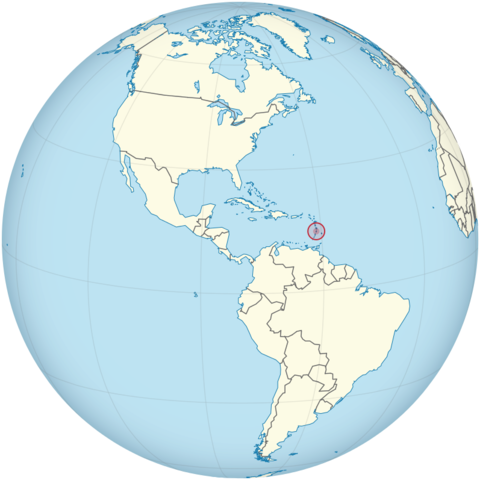 Today we continue our journey across jurisdictions that are so similar it becomes difficult to tell them apart.
Today we continue our journey across jurisdictions that are so similar it becomes difficult to tell them apart.
This time, the subject matter is the island of Saint Lucia, a tax haven which sees an overrepresentation of Italian clientèle.
This tiny little island hinges at the extreme of the Caribbean, being one of the most eastern of all Caribbean islands except for Barbados (which technically isn’t in the Caribbean).
Saint Lucia like most Caribbean offshore jurisdictions and some of the Pacific ones are superficially almost indistinguishable from each other – all basing their IBC laws on the BVI original, trust law on UK and British Overseas Territories tradition, and foundation laws on Liechtenstein and Panama.
Differences come down to cost (a few hundred dollars one way or the other), reputation, and tax treaties (Double Taxation and Exchange of Information).
Geography and Demography

Map from Wikipedia.
;
Full Name:;Saint Lucia
Official language(s):;English
Other major languages:;Saint Lucian Creole, French
Type of government:;Parliamentary democracy
Area:;617 km²
Timezone:;UTC-4
Population:;173,000
GDP per capita:;8,000 USD
Currency:;East Caribbean Dollar (XCD), pegged at 1 USD = 2.7 XCD
[/table]Incorporation and Business
Reputation
Saint Lucia is a very small and little-known jurisdiction. It does not have a stigma like for example Belize does but neither is it a known and reputable jurisdiction like Hong Kong or Singapore.
At the end of the day, an IBC is an IBC. It’s still a problematic company type in and of itself due to the strict secrecy and lax standards of compliance.
OECD has rated Saint Lucia as Partially Compliant, meaning it still has quite a lot left to achieve. It seems that Saint Lucian registered agents can refuse requests for information. This effectively means it’s up to the registered agent to choose whether they should comply or not. Unlike a handful other jurisdiction where EOI is legally impossible, Saint Lucia is in a position where there is a choice.
If Saint Lucia were to become a bigger, more important jurisdiction, this degree of selective secrecy could potentially wreak havoc to its reputation and place it among the likes of Brunei and Vanuatu. However, because of its relatively small size, this has not yet proven a significant challenge.
General Information
It’s your typical IBC jurisdiction. Not much to say. Saint Lucia enacted its International Business Companies Act in 2000.
Costs of incorporation are mid-range but there is a rather limited supply of registered agents, which hasn’t created a particularly healthy competition.
Regulator
Ultimate responsibility falls on the Ministry of Finance and its Financial Services Regulatory Authority.
Promotion and some degree of oversight is provided by the registry, Pinnacle St. Lucia.
International Business Company (IBC)
- One director required. Corporate directors permitted.
- One shareholder required. Corporate shareholders permitted.
- No paid up share capital required (usually 50,000 USD authorized).
- Registered address in Saint Lucia required.
- No audit or filing required unless the company opts for it or opts for taxation.
Bearer shares are not permitted. Only registered shares are allowed.
Taxation
Optional and in most cases none. Those who opt to pay tax pay a tax rate of 1%.
Public Records
Company name only. Directors and shareholders are not known to the company registry.
Saint Lucia Trust
In 2002, Saint Lucia enacted its International Trusts Act. It has seen very little usage and offers nothing unique.
Service Providers
The Pinnacle registry maintains lists of Overseas Agents and Local Registered Agents.
Banking
Generally unimpressive if not downright bad.
Banking Secrecy
It’s the same as all other IBA jurisdictions:
In theory, the secrecy is rigorous.
In reality, Saint Lucia lacks any tradition of secrecy and privacy.
Saint Lucia authorities are empowered to compel banks to disclose information without a court order, and share this information with foreign authorities. Note that this is different than the selective secrecy surrounding companies.
Banks in Saint Lucia
There are nine banks licensed under the IBA:
- Amerigo Banking Corporation – class B, 2004
- Atlantic Financial Limited – class B, 2008
- Bank of St. Lucia International Limited (BOSLIL) – class A, 2004
- Corom Bank Limited – class A, 2014
- First Citizens St. Lucia Limited – class A, 2004
- First Citizens Financial Services (St. Lucia) Ltd. – class B, 2010
- Hermes Bank Limited – class A, 2012
- Mayberry West Indies Bank Limited – class A, 2014
- Petrus Private Bank Limited – class A, 2015
- PLG Capital Bank Limited – class B, 2014
- Sovereign Bank Inc. – class A, 2012
- StateTrust International Bank & Trust Ltd. – class A, 2007
- Via Bank Ltd. – class A, 2006
Class A license is a license to conduct business with third parties who are neither citizens nor residents of Saint Lucia. Physical presence in Saint Lucia is required, but this in practice only means a dedicated address and an accountant.
Class B licenses are limited to conducting business with a defined group of people, i.e. captive banking. A physical presence in Saint Lucia is not required, beyond a registered address.
Living in Saint Lucia
Although there are some tax advantages to living in Saint Lucia, mainly the lack of a capital gains tax, obtaining residence in Saint Lucia offers no clear advantages over comparable jurisdictions. Permanent residence permit can be acquired after five years of residence, which is usually attained by purchasing real estate or by having a work permit (which is difficult to get).
Crime is a growing problem on the island, which is a relatively poor nation. Some parts of the capital Castries should by avoided.
Infrastructure is poor although strong enough to maintain a fairly large tourism sector.
Final words
Just another IBC/IBA jurisdiction.
No major reputational disadvantages that would set it aside from its peers, except it’s relatively unknown.
Can be more secretive than others.
See also
- OECD Peer Review of Saint Lucia (also has a list of TIEA and DTA)
- Financial Secrecy Index Saint Lucia
- FATF documents on Saint Lucia
- CFATF documents on Saint Lucia
Thanks for the reply.
My question about the CIP programs was more in relation to the effect on the jurisdiction rather then the value of the program to individuals. I do agree with you however on your points about their value to an individual.
How do these CIP programs affect the reputation of the offshore sector in countries? Have Antigua and St. Kitts suffered a blow to their reputation as a result of implementing them?
Good article… I’m wondeirng however about your point pertianing to living in St. Lucia where you mention that there are no tax advantages to living in St. Lucia. It’s my understanding that both dividends and capital gains are not taxed in St. Lucia. Assuming that’s the case one could incoproate an IBC in St. Lucia or other jurisdiction and receive income from their IBC in the form of dividends whereby there would be no tax liabilities. Would you not consider this advantageous?
Something else interesting about St Lucia which was not mentioned in this post is that like Antigua, St. Kitts and Dominica they too have a plan to implement a citizenship by investment program. What are your thoughts surrounding countires that implement CIP programs and the underlying result it has on the reputation of the jurisdiction?
Thanks for catching the issues with the Living In Saint Lucia chapter. I think I had left it almost entirely intact after copy-pasting the Belize article as a template.
CIPs are a great source of income for these jurisdictions. Whether they are useful or not depends on each unique situation. I would say that, in my experience, at least half of the citizenships issued are pointless aside from giving the holder a (false) sense of security or that it satisfies some urge to internationalize. A second citizenship from a tax haven isn’t going to help you lower your tax burden unless you also take up residence there.
Thanks for the reply.
My question about the CIP programs was more in relation to the effect on the jurisdiction rather then the value of the program to individuals. I do agree with you however on your points about their value to an individual.
How do these CIP programs affect the reputation of the offshore sector in countries? Have Antigua and St. Kitts suffered a blow to their reputation as a result of implementing them?
They don’t have a tremendous impact on the overall reputability of the jurisdiction. Belize was criticized for theirs and ended up scrapping it but the others are more or less tolerated. Due diligence standards are generally high.
The passports themselves can be problematic when crossing borders, opening bank accounts, et cetera.
Unless you have a Caribbean disposition, a German border control officer may take you aside for extra questioning. You’ll likely be let through in the end but that extra questioning can be quite uncomfortable.
A bank may find it suspicious that you are presenting a Dominican passport. They know you most likely have another citizenship and may insist on seeing it instead.